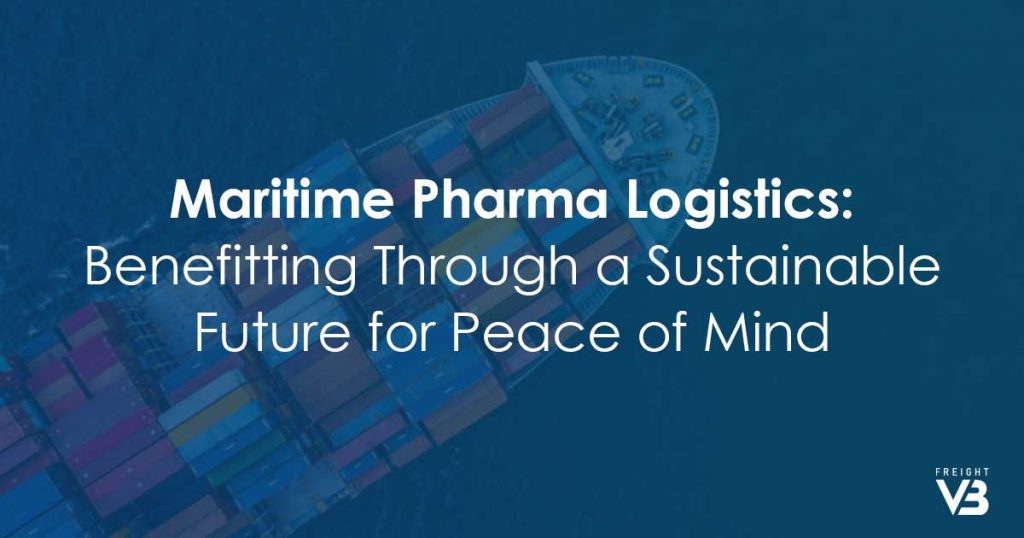
Key Takeaways
- Sustainable Ports: Green marine facilities reduce carbon footprint, making pharmaceutical logistics eco-friendly and secure.
- Renewable Energy: Adopting renewable sources ensures a safe and sustainable pharma supply chain.
- Carbon Sequestration: Innovative solutions like rock pools enhance carbon capture and marine ecosystems.
- Supply Chain Resilience: Flexible networks minimize disruptions, enhancing output and customer satisfaction.
- Pharma Logistics Needs: Meeting transportation and handling requirements ensures the integrity of pharmaceutical shipments.
- Success Stories: Regulations and eco-friendly practices reduce shipping emissions, promoting sustainability and security.
Ensuring the Safety of Pharma Shipments
Green marine facilities are ports and terminals that have implemented environmentally sustainable practices to reduce their carbon footprint and minimize the impact of their operations on the environment. These facilities are designed to reduce energy consumption, minimize waste, and reduce emissions. They are equipped with advanced technologies and infrastructure that enable them to operate in an environmentally friendly manner.
Securing Green Maritime Facilities for Pharma Logistics
Green maritime facilities benefit medical or pharmaceutical logistics in several ways. They can help reduce the carbon footprint of the maritime industry and promote sustainable development. For instance, green marine facilities can utilize eco-friendly materials and textured surfaces to foster increased biodiversity and habitat for marine life, promoting a harmonious coexistence.
Renewable energy can be harnessed to ensure safe pharma logistics. The Energize program, launched by Schneider Electric and 10 global pharmaceutical companies, aims to accelerate the adoption of renewable energy and reduce greenhouse gas emissions within the pharmaceutical value chain. The program will enable pharmaceutical suppliers to learn more about renewable energy adoption and contracting, and help them address their own operational Scope 2 greenhouse gas emissions through green power procurement, which in turn will reduce the participating companies’ Scope 3 emissions.
The Foundation of Pharma Logistics Security
Green marine facilities also play a crucial role in enhancing carbon sequestration and promoting sustainable development. Innovative water-retaining rock pools are being integrated into breakwaters and groynes, transforming them into small ecosystems. These pockets of marine life contribute to the natural process of carbon sequestration, enhancing the ocean’s capacity to absorb atmospheric CO2.
Pharmaceutical logistics security is a complex issue, with challenges like poor road infrastructure and cybersecurity threats. Companies need to be vigilant and prepared for potential disruptions.
Protecting Pharma Cargo – A Critical Safety Concern
Pharmaceutical cargo is a critical safety concern that requires a multi-faceted approach to ensure its protection. Green marine facilities can play a crucial role in coastal protection and enhancing carbon sequestration, promoting sustainable development. Innovative water-retaining rock pools are being integrated into breakwaters and groynes, transforming them into small ecosystems. These pockets of marine life contribute to the natural process of carbon sequestration, enhancing the ocean’s capacity to absorb atmospheric CO2.
To enhance supply chain efficiency for pharma cargo, companies can adopt several measures, including supply chain modeling, freight audit and payment, demand forecasting, sustainability, and logistics management. Building supply-chain resilience is crucial in today’s world of disruptions caused by natural disasters, international trade tensions, cyberattacks, and global pandemics.
Supply Chain Resilience
Supply chain resilience is a critical aspect of the pharmaceutical industry. The supply chains have become increasingly global, complex, and opaque, making them vulnerable to disruptions caused by various factors.
Flexible supply networks can help companies minimize the risk of disruption in times of stress. Investments in supply chain resilience can deliver significant improvements in output and customer satisfaction.
Examining Success Stories
Success stories of green marine facilities in pharma logistics highlight their role in reducing the carbon footprint of the maritime industry and promoting sustainable development. For instance, ships account for around 3% of worldwide greenhouse gas emissions, contributing to the acceleration of climate change. To address this, the International Maritime Organization (IMO) reduced their allowable sulfur fuel emissions to just 0.5% from originally 3.5% as of January 1, 2020.
Final Thoughts
Looking ahead, the future of pharmaceutical logistics lies in green, resilient, and secure supply chains. Embrace sustainability, invest in innovation, and collaborate for a safer world. Together, let’s forge a path towards a pharmaceutical logistics system that safeguards health, the environment, and peace of mind.
References:
Logistics of the Energy Revolution
Sustainable Energy Strategies for Pharmaceutical Manufacturers
10 Global Pharmaceutical Companies Launch First-of-its-Kind Supplier Program to Advance Climate Action
Marine Carbon Sequestration: New Research Delves Into Fate of Ocean Carbon
https://scitechdaily.com/marine-carbon-sequestration-new-research-delves-into-fate-of-ocean-carbon/
Valuing Blue Carbon: Carbon Sequestration Benefits Provided by the Marine Protected Areas in Colombia
https://journals.plos.org/plosone/article?id=10.1371/journal.pone.0126627
Natural England publishes major new report on carbon storage and sequestration by habitat
New Report Assesses the Feasibility, Cost, and Potential Impacts of Ocean-Based Carbon Dioxide Removal Approaches; Recommends U.S. Research Program
IMO 2020 – Cutting Sulphur Oxides Emissions
https://www.imo.org/en/MediaCentre/HotTopics/Pages/Sulphur-2020.aspx
COP 22 Secures Consensus on Curbing Emissions of Sulphur Oxides from Ships in the Mediterranean


